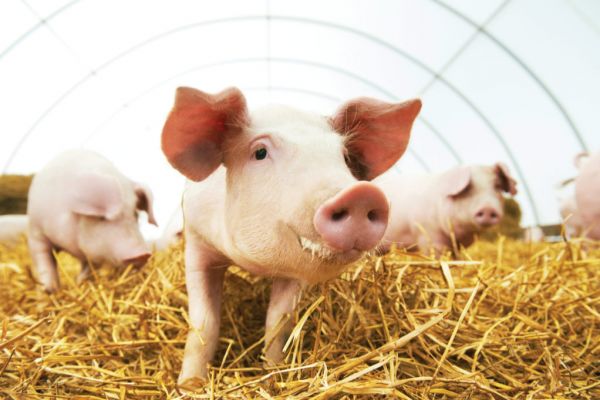An outbreak of African Swine Fever threatens to keep German pork locked in the European Union, with China, South Korea and Japan all banning shipments, marking a major setback in an already challenging year for meat producers following COVID-19 outbreaks at plants.
German wholesale pig prices fell 14% on Friday (11 September) after a case of ASF was found in a wild boar in the east of the country and major buyers on the international market quickly responded by banning shipments from the EU's top producer in what was due to be a big sales year.
In China, the world's biggest pork producer, the disease caused hundreds of millions of pigs to be culled and raised imports of protein from other sources.
German pork exports to China are worth around €1 billion ($1.2 billion) annually, and volumes had doubled in the first four months of this year on soaring demand after Chinese output shrank around 20%.
'A Hard Blow'
"The Chinese export stop is a hard blow for farmers and for industry in Germany," said André Vielstaedte, spokesman for Germany's largest meatpacker and exporter Tönnies.
African swine fever spreads through contact with infected animals and can also be spread by people and trucks. It is almost always fatal in pigs but does not harm people.
Germany has sought a limited, regional ban on exports as the outbreak near the Polish border is hundreds of kilometres from the major producing region in north-west Germany. Whereas the concept of a regional ban exists in intra-EU trade, China has so far stuck to a national ban.
German exports included large tonnages of pig parts such as ears, noses and feet which are regarded as delicacies in Asia but are unwanted in Europe.
Sellers will struggle to make similar margins on products normally sold to Asia.
The Pricing Factor
"If supermarkets use this as an opportunity to keep prices low then the future of many pig farmers is in doubt and many could close," said Matthias Quaing of German pig farmers' association ISN.
COVID-19 has already made this is a difficult year with the virus causing major problems at meat plants.
The Tönnies plant in Rheda-Wiedenbrueck closed in mid-June after about 1,500 workers tested positive.
"For Germany there are no real alternative pork export markets visible the size of China and others in Asia," said Tim Koch, meat analyst at German independent market consultancy AMI.
"In the short term downward price pressure is likely in Germany after pig price falls on Friday," he said.
EU Rivals
China's pork imports surged by 75% in 2019 and have continued to climb in 2020.
The ban of German shipments should, therefore, provide major opportunity for rival exporters and CME lean hog futures have risen to a six-month high.
"I think Germany's pork sales to China will be replaced by a series of other exporters such as the United States, Spain, Canada and Brazil. Some EU exporters are also likely to seek extra sales such as the Netherlands and Denmark," said Rabobank analyst Justin Sherrard.
US exporters seem particularly well placed to pick-up sales.
"With the COVID-19 interruptions in slaughter more or less behind us, the US would be well positioned to move more pork in the last four months of the year, whether it's to China or to other markets," said Joe Schuele, spokesman for the US Meat Export Federation, an industry group.
Smithfield Foods, the largest US pork producer, is owned by China's WH Group Ltd while other major players who could benefit include JBS USA and Tyson Foods.
The ban should also provide a boost to already rising shipments of pork from Brazil to China.
In August, Brazil sold 50,700 tonnes of pork to China, up 168% from the same month a year ago and accounting for more than half of total export sales of 98,500 tonnes, according to ABPA, the association representing pork and poultry processors.
Canada, another major pork exporter, has limited room to increase volumes with China which already accounts for nearly half of Canada's pork exports, said Richard Davies, executive vice-president of sales at Olymel lp, one of Canada's biggest pork shippers.
The country's other big pork processor, Maple Leaf Foods , is suspended from shipping to China from its Brandon, Manitoba plant after a COVID-19 outbreak there.
European Options
The EU industry will be hoping, however, that as much business as possible will be won by Spain, Denmark and the Netherlands to prevent oversupply within the trading bloc.
A spokesman for Danish Crown said in the short term the company did not have the capacity to expand sales to China.
China's top supplier Spain, however, should see an increase in sales following the ban on exports from Germany.
"While Spanish pork production has slowed slightly as a result of heightened safety measures this should not affect the capacity to supply domestic markets or meet export demands, according to the Interporc industry association.
Spain's top producers include Jorge Group and Vall Companys.














